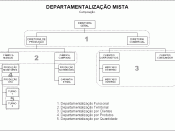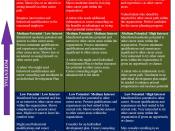Abstract
This paper will examine the challenges faced by management during each of the stages in the life-cycle of an organization. It will also examine how decisions and challenges affect each stage (start-up, growth, maturity and decline) and determine ways to overcome those challenges. Additionally, it will explore the effects of decisions made during the Life Cycle simulation and how it affected the performance of the organization.
Managing Life Cycle Influences
In my review of the literature related to management challenges in the life-cycle of an organization (start-up, growth, maturity and decline), I discovered that managers face numerous challenges. I found the simulation, "Managing Life Cycle Influences in an Organization" to be very insightful in presenting a realistic picture of these challenges.
In the start-up phase, the organization is trying to establish itself in the market. It is during this process that the organization develops a business plan, determines its services, objectives, identifies key markets and defines its mission and purpose or vision.
It is important that an organization clearly defines its goals to avoid strain on the business in the later stages. The organization will focus on developing its infrastructure and the creation of long-term goals. One of the biggest challenges during this phase is a limited budget, staffing and determining how to allocate resources. The company must determine how best to distribute its funds by deciding how much to spend on personnel, products or services and marketing.
In the simulation, my decisions concerning staff selection were based on the organization's immediate needs. Positions that were considered to be an integral part of the organization were hired as full-time employees. Part-time positions were assigned to areas where it did not constitute an immediate need, and was not relied upon daily. It is important for managers to adopt an...


